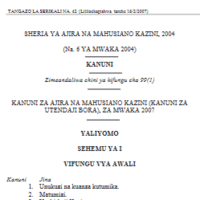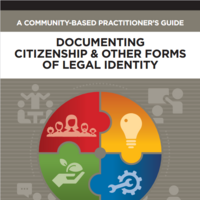Search
Books+
Searching 1,730 books
Search related to the career Tax Lawyer
How to become a tax lawyer:
1. Obtain a bachelor's degree: Earn a bachelor's degree in any field, preferably in a related field such as accounting, finance, or business.
2. Take the Law School Admission Test (LSAT): Prepare for and take the LSAT, a standardized test required for admission to law school. Achieving a high score is crucial for gaining admission to reputable law schools.
3. Earn a Juris Doctor (J.D.) degree: Apply and get accepted into an accredited law school. Complete the required coursework and earn a J.D. degree, typically taking three years of full-time study.
4. Pass the bar exam: After graduating from law school, pass the bar exam in the state where you wish to practice law. Each state has its own bar exam requirements.
5. Gain experience in tax law: Seek internships or entry-level positions at law firms, government agencies, or accounting firms that specialize in tax law. This will provide valuable practical experience in the field.
6. Consider obtaining an LL.M. in Taxation: Although not mandatory, pursuing a Master of Laws (LL.M.) degree in Taxation can enhance your expertise and marketability in tax law. It typically takes one year to complete.
7. Obtain licensure and certifications: Once you have passed the bar exam, apply for licensure in your state. Additionally, consider obtaining certifications such as the Certified Tax Law Specialist (CTLS) designation to further demonstrate your expertise in tax law.
Requirements to become a tax lawyer:
- Bachelor's degree in any field (preferably related to law or finance)
- Law school admission and completion of a J.D. degree
- Passing the bar exam in the state where you wish to practice law
- Optional: LL.M. in Taxation and certifications such as CTLS
Best law schools for tax law:
- New York University (NYU) School of Law
- Georgetown University Law Center
- University of Florida Levin College of Law
- University of Michigan Law School
- University of San Diego School of Law
- University of Denver Sturm College of Law
- Northwestern Pritzker School of Law
- University of California, Berkeley School of Law
- University of Virginia School of Law
How to specialize in tax law:
1. Focus on tax-related coursework: During law school, choose elective courses that specialize in tax law, such as income tax, corporate tax, international tax, or estate planning.
2. Seek tax law internships: Look for internships or clerkships at law firms, government agencies, or accounting firms that specialize in tax law. This will provide practical experience and exposure to tax-related cases.
3. Join tax law organizations: Become a member of professional organizations like the American Bar Association's Section of Taxation or the Taxation Section of your state's bar association. Attend conferences and seminars to network with other tax law professionals.
4. Pursue an LL.M. in Taxation: Consider obtaining a Master of Laws (LL.M.) degree in Taxation to gain specialized knowledge and demonstrate your commitment to the field.
5. Stay updated on tax laws and regulations: Tax laws are constantly changing, so it's important to stay informed about new developments and updates in tax legislation. Attend continuing education programs and read professional publications to stay current.
Job opportunities for tax lawyers:
- Law firms specializing in tax law
- Accounting firms with tax law departments
- Government agencies such as the Internal Revenue Service (IRS) or the Department of Justice
- Corporate legal departments
- Non-profit organizations
- Academia as tax law professors or researchers
Source: Various AI tools
Law
Books tagged law
Searched in English.



























